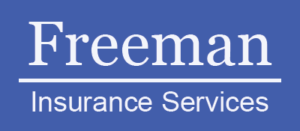by Will Freeman
Share
by Will Freeman
Share

Small Business Post-Enrollment Health Insurance Compliance
You made it through another health insurance renewal! All plans are in place, your employees are enrolled, and ID cards in their hands.
While you may have a sense of relief, you still need to complete a few compliance tasks before totally forgetting about your benefits program.
Here are 4 things you need to do to make sure your group insurance plan stays compliant!
1) Provide employees with a copy of your plan’s Summary of Benefits and Coverages (SBC)
The Affordable Care Act (Obamacare) requires employers to provide employees with a copy of Summary Benefits and Coverages (SBC) for all plans. Regardless if you changed plans or renewed “as-is”, you still have to provide a copy of this document to your employees.
The SBC is a carrier-created document required by law to be in a template created through he Affordable Care Act. The document is easy to read and clearly lays out the benefits of your plan. It will even provide employees with examples of how the plan works.
Sometimes carriers will send these to employers and tell them to distribute to employees. Recently, we’ve seen carriers send emails instructing employers on how to pull the document themselves.
As a broker, I pull these documents all the time and can do so more efficiently than employers. I advise my clients to request the SBC from me rather than spend a lot of time trying to navigate carrier websites looking for these documents.
If you are not a current client and your broker is not helping with this task, feel free to contact me and I’ll help you get the correct document.
2) Update your Summary Plan Description (SPD) and 125 Premium Only Plan (125 POP)
The Summary Plan Description (SPD) is a document ERISA requires employers to maintain. It breaks down what benefits the company offers, who is eligible, what the company pays, how to enroll, waiting periods, etc.
The SPD is NOT provided by insurance carriers. Therefore, every employer offering benefits must have their own SBD. It is HIGHLY recommended that a copy of your SPD be printed out and in an easy to find binder in your office. If you are ever audited by the Department of Labor and they ask for a copy of your SBC, your ability to grab a binder and hand it to them will go miles in avoiding fines and penalties.
The Section 125 POP is a document required by the IRS if you want to give your employees the ability to pay their premiums with pre-tax dollars. This document contains a lot of the same information as the SPD. In fact, McGregor and Associates, who I recommend my clients use for the preparation of both documents make a combined SPD/125POP document.
With your renewal complete, make sure both documents have been updated to reflect all benefit changes.
3) Provide employees with required notices
Many employers don’t realize this, but if you offer a health insurance to your employees, you must provide them with a number of notices. By partnering with a TPA like McGregor and Associates, they will make sure you have all notices and will email them to you with instructions on how to properly distribute them.
All employers offering health insurance in the United States, have to provide the following notices:
- Consolidated Omnibus Budget Reconciliation Act (COBRA) (employers with more than 20 full-time employees)
- Health Insurance Portability and Accountability Act (HIPAA)
- Mental Health Parity and Addiction Equity Act (MHPAEA) and Mental Health Parity Act (MHPA)
- Newborns’ and Mothers’ Health Protection Act (Newborns’ Act)
- Women’s Health and Cancer Rights Act (WHCRA)
- Genetic Information Nondiscrimination Act (GINA)
- Michelle’s Law
For model notices and specific information on how, when, and if you have to distribute these notices, please go to the Department of Labor’s website here and take the “Health Benefits Advisor for Employers” quiz at the bottom right hand side of the page. This quiz is invaluable and will help you see exactly what you need to do.
4) Create a new hire binder
When discussing compliance with my clients I strongly encourage them to make compliance a habit. Too often, I will talk with a small business who hires a new employee, has them complete an I-9, gives them a desk and that’s it. The employer then tries to remember to give them benefit information after their waiting period is fulfilled.
I prefer the use of a new hire booklet given to the employee on Day 1 of employment. This booklet should contain things like the I-9, all benefits applications, and anything else they will need to complete as a new hire, regardless of waiting periods.
Your insurance carrier’s computer will keep track of the new hire’s waiting period. You can still put a reminder in your calendar for the end of the waiting period if you want to check to make sure they are still employed. But, you want to avoid any oversight on your part as to offering them coverage.
Doing this on their first day of employment, rather than trying to remember when their waiting period is over will insure you get all the information you need in a timely manner.
Additionally, it will build a habit of providing the information up front so you protect yourself form being accused of “not offering” a benefit the employee is entitled to.
As with the other compliance items, I like employers to be able to immediately say to an Auditor, “XYZ document was given to the employee on ABC date. I know this because we do it with every single new hire. Here’s my documentation to support that claim”.
Final Thoughts
Benefit compliance can be confusing. Please don’t hesitate to contact me with any questions or concerns you have about compliance. While it seems like a mountain of information to you, those of us that work in the field every day with many different employers can guide you on what you need to do and how you should do it.
Like this article?
Register for our newsletter:
[contact-form-7 id=”12552″ title=”Newsletter Signup”]STAY IN THE LOOP
Subscribe to our free newsletter.
Few insurance brokers are willing to disclose how much they make from their clients’ accounts. Perhaps they don’t believe they do enough work to deserve the money they receive for helping their clients. Personally, the last thing I review with my clients in our mid-year reviews is Broker Compensation. I want all of my clients […]
By now, you should have a good idea of how the Affordable Care Act (ACA) has impacted your company’s health insurance plan. For those employers benefiting from the ACA, we’ve seen consistently low premiums from United Healthcare. For employers facing higher premiums and less benefits from the ACA, we’ve seen more and more options from […]
Any insurance carrier selling health insurance plans in the state of Kentucky to employers with 50 or fewer employees, must have their rates approved by the Department of Insurance. These filings are public record and found on the DOI website. Employers can use these filings to get an idea of what their next insurance renewal […]
Health insurance renewal season is stressful for everyone involved. It is particularly stressful for employers. They have to select carriers, plans and benefits, educate their employees, and collect an overwhelming amount of paperwork within a very short window of time. Over the years, I’ve found that using a custom checklist with my clients helps […]





